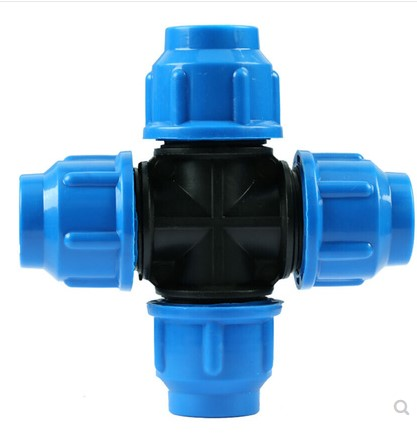Oct . 13, 2024 16:14 Back to list
Comparing PPR and PVC Pipes in Manufacturing and Industrial Applications
PPR Pipe vs PVC Pipe A Comprehensive Comparison
When it comes to selecting the right piping material for plumbing and construction purposes, two of the most commonly debated options are PPR (Polypropylene Random Copolymer) and PVC (Polyvinyl Chloride) pipes. Each material has its unique properties, advantages, and disadvantages, making the selection process crucial for a successful plumbing system. This article explores the key differences between PPR and PVC pipes, providing insight into which material may be better suited for specific applications.
Material Composition
PPR pipes are made from polypropylene, a thermoplastic polymer known for its durability and resistance to high temperatures and chemicals. PVC pipes, on the other hand, are made from polyvinyl chloride, which is a widely used plastic known for its strength and versatility. The difference in composition contributes to the distinct properties of each type of pipe.
Temperature Resistance
One of the foremost advantages of PPR pipes is their exceptional resistance to high temperatures. PPR pipes can handle temperatures up to 95°C (203°F), making them suitable for hot water supply systems. In contrast, PVC pipes are limited to a maximum temperature of around 60°C (140°F). This significant difference makes PPR pipes the preferred choice for plumbing where hot water is involved, such as in residential plumbing, heating systems, and industrial applications.
Durability and Longevity
Both PPR and PVC pipes have impressive longevity; however, PPR pipes generally have a longer lifespan. PPR can last over 50 years when installed correctly, thanks to its resistance to corrosion, scaling, and biological growth. PVC pipes also boast a long life expectancy, averaging around 25 to 40 years, but they can become brittle over time, especially when exposed to UV light or extreme temperatures. Thus, for applications where durability is paramount, PPR pipes are often the superior choice.
ppr pipe vs pvc pipe factories

Installation and Flexibility
PVC pipes are known for their ease of installation. They are lightweight, rigid, and available in various standard sizes, making them a convenient option for both professional plumbers and DIY enthusiasts. The assembly generally involves solvent welding, which can be a straightforward process. On the other hand, PPR pipes require a fusion welding process for joining, which may necessitate specialized tools and training. While this method creates a robust and leak-free joint, it can be more complicated than PVC installation.
Cost Considerations
Cost is a primary factor for many when selecting pipe materials. Generally, PVC pipes are less expensive than PPR pipes, making them an attractive option for budget-conscious projects. However, when considering the long-term benefits and durability of PPR, the initial investment may prove to be more economical over time. The cost of installation and potential repairs should also be factored into the overall price comparison.
Environmental Impact
Both materials have environmental implications. PVC production involves harmful chemicals and generates toxic byproducts, while PPR is considered more environmentally friendly as it can be recycled and is free from harmful additives like phthalates or heavy metals. For projects prioritizing sustainability, PPR offers a more eco-conscious option.
Conclusion
Choosing between PPR and PVC pipes ultimately depends on the application requirements, budget, and personal preferences. For high-temperature applications, durability, and long-term savings, PPR pipes may be the way to go. Conversely, for lower-cost and straightforward installations, PVC pipes could be more suitable. Assessing the specific needs of your plumbing project will guide the decision, ensuring optimal results in performance and reliability.
-
DN100 PVC Pipes for Well Casings - Durable & Corrosion-Resistant
NewsAug.22,2025
-
HORON 25mm PPR Plumbing Pipes: Durable, Reliable & Leak-Proof
NewsAug.21,2025
-
32mm HDPE Pipes in Coil: Flexible & Durable Water Supply
NewsAug.19,2025
-
Flexible 32mm HDPE Pipes in Coil - Durable & Easy Install
NewsAug.18,2025
-
HDPE Sprinkler Pipe Manufacturers - Quality & Durable Solutions
NewsAug.17,2025
-
Durable DN100 PVC Well Casing Pipes for Reliable Water Supply
NewsAug.16,2025

